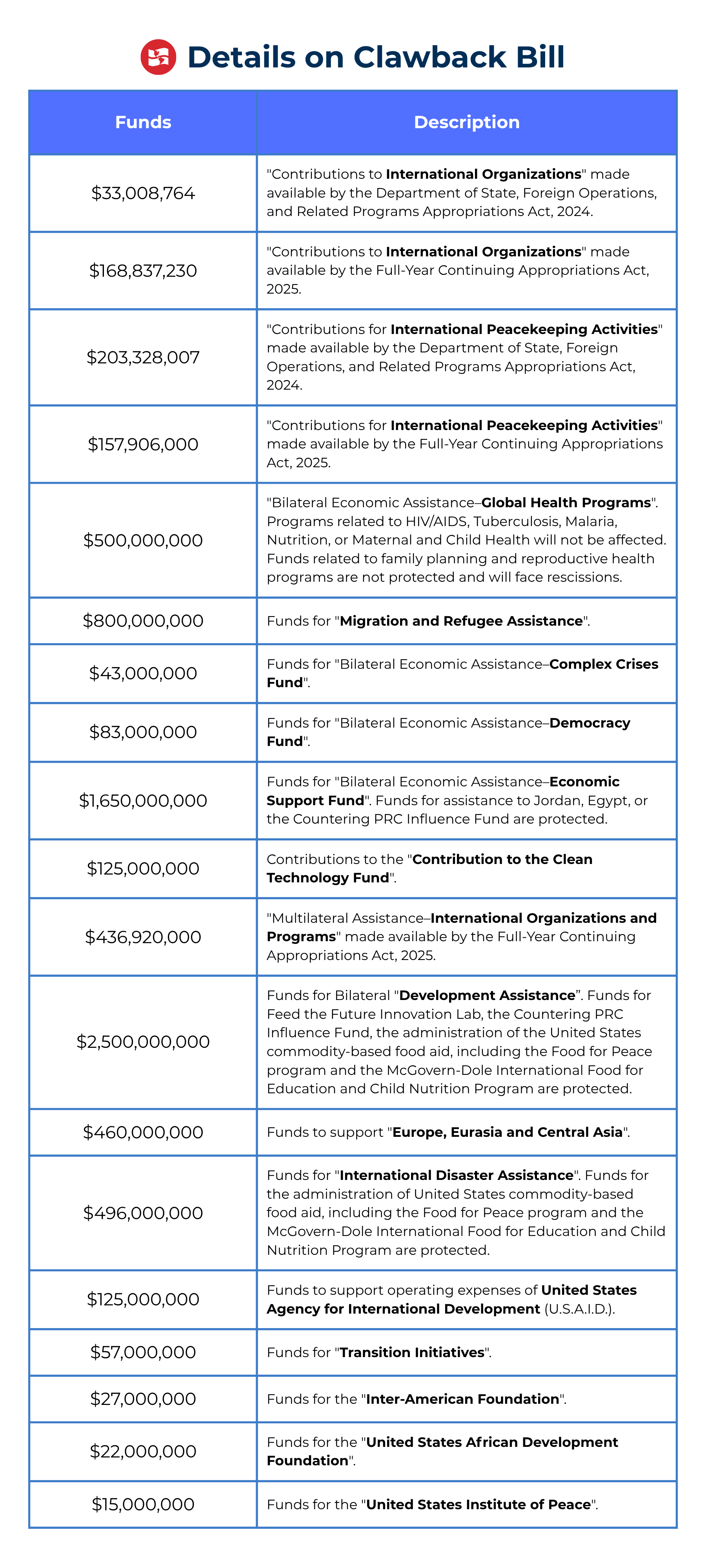Congress’ approval represents an abdication of its power over the purse
In the early hours of July 18, 2025, the House of Representatives approved a Senate-amended rescission bill that claws back $9 billion in funding previously approved by Congress. What are the implications of the approval of this rescission package? We explain more below.
What funding was rescinded?
Close to $7.9 billion in foreign aid funds allocated to support a wide range of programs, and $1.1 billion in taxpayer support for the Corporation for Public Broadcasting, which provides grants to National Public Radio (NPR) and the Public Broadcasting Service (PBS). You can find a table with more details on these rescissions below.
What was the vote in the House and Senate?
The bill narrowly passed in Congress. In the Senate, the vote was 51 to 48, with Senator Collins (R-ME) and Murkowski (R-AK) siding with Democrats in opposition. The House approved it 216 to 213, with Representative Fitzpatrick (R-PA) and Turner (R-OH) also voting against it.
What is the significance of this measure?
As mandated by the U.S. Constitution, Congress holds the power to allocate funds and approve spending – known as the power of the purse. By approving this clawback package, and doing so at the request of the Trump administration, Congress relinquishes its power of the purse – a power it has historically guarded – and contributes to the erosion of the checks on the executive’s power. This continues to fortify a consolidation of unchecked executive power that goes against the Constitution. The Administration has indicated that it will pursue additional rescission packages.
How is the power of the purse a check on the executive branch’s power?
The power of the purse allows Congress to have a say in how the executive branch exercises its powers. The president acts as the commander in chief of the armed forces and has under his supervision a number of federal agencies. Congress can, however, act as a check on the executive branch’s power by slashing an agency’s funding and denying funds for military operations if it does not agree with their actions.
What are the potential impacts of the rescission package?
The cuts to public broadcasting are expected to hit local NPR and PBS stations particularly hard, forcing many to reduce their programming and operations, particularly in rural areas which already have a scarcity of access to information. In a context of increasing misinformation, cuts to public broadcasting are also expected to affect many people's access to reliable news, weather alerts and other vital information. As for international aid, the specific impact is difficult to estimate due to the lack of concrete data. The cut will affect key categories such as: peacekeeping missions, global health programs, migrant and refugee assistance, economic assistance, investments in clean technology, and disaster aid around the world. All causes that help alleviate the root causes of forced migration.
